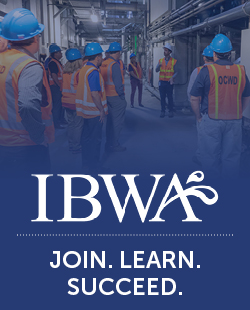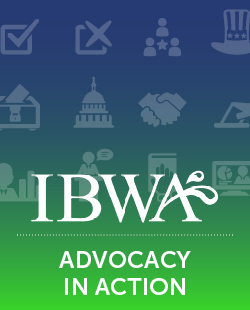IBWA Testimony on House Bill 2051 (Spilka)
IBWA Testimony on House Bill 2051 (Spilka)
IBWA Testimony on House Bill 2051 (Spilka)
Massachusetts Joint Committee on Health Care
Wednesday July 9, 2003
Boston, Massachusetts
Chairman Moore, Chairman Koutoujian and members of the Joint Health Care Committee, my name is Troy Flanagan and I am the Director of Government Relations for the International Bottled Water Association (IBWA) . I am here today to speak in opposition to House Bill 2051, by Rep. Spilka.
House Bill 2051 calls for the labeling of all articulated minerals in bottled water products. This requirement goes beyond any labeling standard required by the U.S. Food and Drug Administration (FDA) or any other state and, if implemented in the Commonwealth, would interfere with the continuity of national labeling standards and the free flow of interstate commerce.
To promote national uniformity of certain food labeling requirements, Congress established preemption for numerous provisions of the Federal Food, Drug, and Cosmetics Act (FFDCA) in the Nutrition Labeling and Education Act (NLEA) of 1990. In doing so, Congress recognized the disruptive impact that conflicting state labeling laws could have on the interstate commerce of foods, and wished to ensure that food products may be marketed in all 50 states in an efficient and cost-effective manner. “One of Congress’ goals . . . was to provide industry with some relief from State requirements that interfere with its ability to market products in all 50 States in an efficient and cost effective manner.”
Bottled water is fully regulated as a food product by the FDA under the FFDCA and several sections of Title 21 of the Code of Federal Regulations (CFR). The FDA has established limits for microbiological, physical, chemical, and radiological substances for both source water and finished bottled water products under the Standards of Quality.
Federal testing frequency and parameters are specified in 21 CFR, Part 129, as part of the Good Manufacturing Practices (GMP) for bottled water. In fact, bottled water is one of few food products with its own specific GMPs. FDA has also established standards for more than 75 substances pursuant to the Standard of Quality for bottled water. Substandard bottled water must be clearly labeled with the appropriate statements regarding non-compliance (e.g., This product contains excessive amounts of iron. ). The product will otherwise be considered misbranded, and possibly adulterated, and removed from retail shelves.
There is no justification or public health need for the blanket labeling of all minerals potentially present in all bottled water products. Specifically, several of the minerals listed are not identified by the U.S. Environmental Protection Agency (EPA) or FDA as primary or secondary contaminants. These minerals are not currently required to be tested for by bottled water companies or by the EPA for public water systems and have no established “standard of quality” or “maximum contaminant level.” This mandate would, therefore, offer the consumer little practical benefit. In addition, several of the metals listed (with the exception of fluoride and possibly sodium) are highly unlikely to be present in any levels contributing to any significant percent of recommended daily intake (RDI).
For these reasons, I urge your opposition to HB 2051.
M. Troy Flanagan
Director of Government Relations
International Bottled Water Association
1700 Diagonal Road, Suite 650
Alexandria, Virginia 22314
Tel: (703) 683-5213 ext. 120
Fax: (703) 683-4074
www.bottledwater.org


